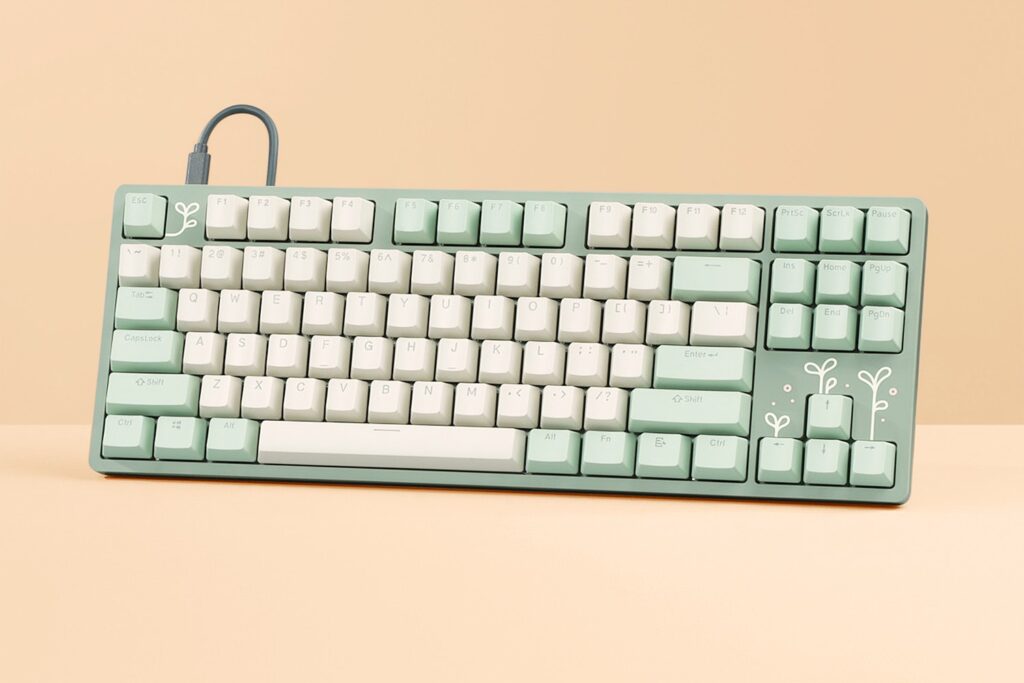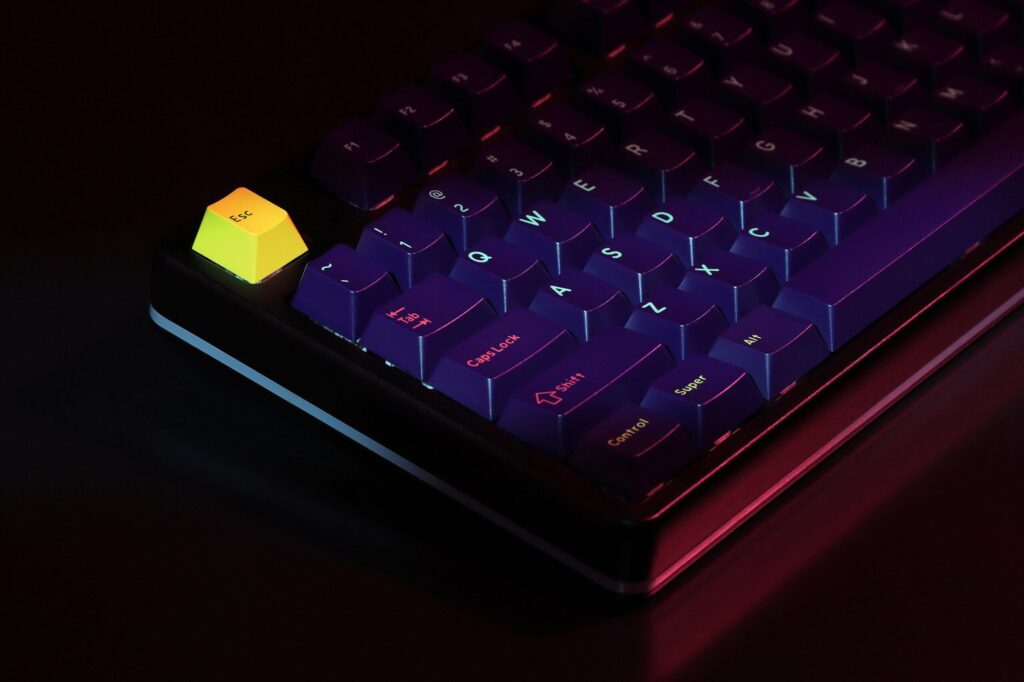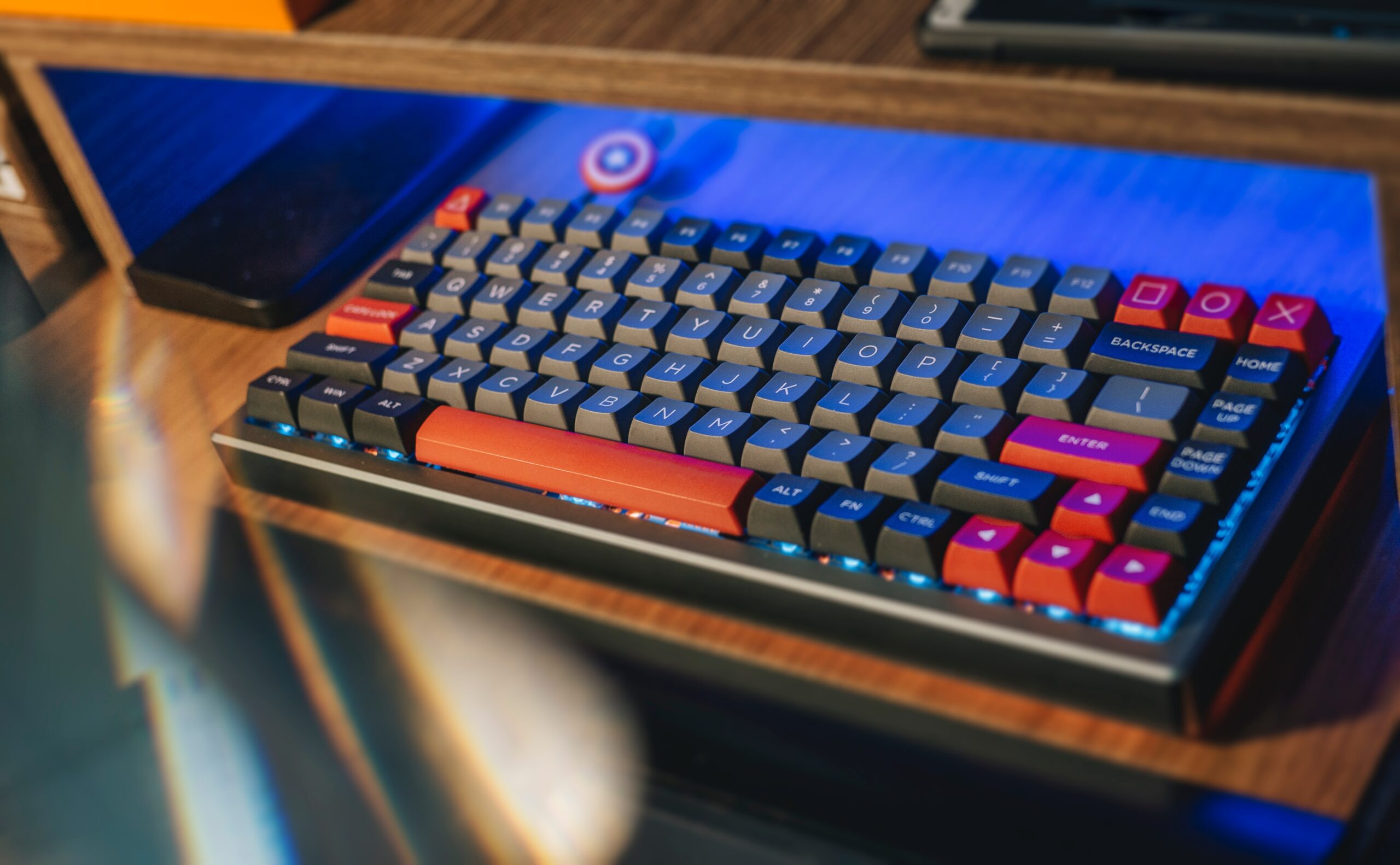In today’s world, a keyboard is an essential tool for most people, especially for those who work on computers for long hours. There are two types of keyboards available in the market, mechanical and membrane keyboards. Both have their own advantages and disadvantages, and choosing the right one can make a big difference in your productivity and comfort. In this article, we’ll explore the differences between mechanical and membrane keyboards and help you determine which one would suit your needs best.
What is a mechanical keyboard?
A mechanical keyboard is a keyboard that uses individual mechanical switches for each key. These switches provide a tactile feedback when the key is pressed, which can make typing feel more satisfying and responsive. Mechanical keyboards are known for their durability, customization options, and noise.
There are different types of mechanical switches available in the market, including Cherry MX, Kailh, and Gateron switches. These switches vary in their tactile feedback, actuation force, and noise level, allowing users to choose the one that suits their preferences the most.
What is a membrane keyboard?
A membrane keyboard, on the other hand, uses a rubber or silicone membrane to create a contact between the key and the circuit board. When a key is pressed, the membrane collapses, completing the circuit and registering the keystroke. Membrane keyboards are typically quieter and cheaper than mechanical keyboards.

Key Differences between Mechanical and Membrane Keyboards
Typing Experience
One of the most significant differences between mechanical and membrane keyboards is the typing experience they provide. Mechanical keyboards are known for their tactile feedback, which can make typing feel more satisfying and responsive. Membrane keyboards, on the other hand, have a mushy feeling and lack tactile feedback, which can make typing feel less satisfying and less responsive.
Durability
Mechanical keyboards are known for their durability, as they can last for several years without needing any major repairs. The individual mechanical switches are designed to withstand millions of keystrokes, making them ideal for heavy typists and gamers. Membrane keyboards, on the other hand, are less durable and may need to be replaced more frequently.
Noise
Mechanical keyboards can be louder than membrane keyboards, especially if they use tactile or clicky switches. This can be a disadvantage if you work in a shared workspace or if you have roommates or family members who are sensitive to noise. Membrane keyboards, on the other hand, are typically quieter and more suitable for quiet environments.
Customization
Mechanical keyboards offer more customization options than membrane keyboards. Users can choose from different types of switches, keycaps, and backlighting options, allowing them to create a keyboard that suits their preferences and needs. Membrane keyboards, on the other hand, have limited customization options and may not offer any backlighting or programmable keys.
Price
Mechanical keyboards are generally more expensive than membrane keyboards, as they use individual mechanical switches for each key. This can make them less accessible for users on a budget. Membrane keyboards, on the other hand, are generally cheaper and more widely available.
Which Keyboard is Best for You?
Choosing the right keyboard depends on your personal preferences and needs. If you’re looking for a keyboard that provides a satisfying typing experience, durability, and customization options, a mechanical keyboard may be the right choice for you. However, if you’re on a budget or need a quieter keyboard, a membrane keyboard may be the better option.
Additionally, if you work in a shared workspace or have roommates or family members who are sensitive to noise, a membrane keyboard may be more suitable. On the other hand, if you’re a heavy typist or a gamer who needs a keyboard that can withstand millions of keystrokes, a mechanical keyboard may be the better choice.
Ultimately, it’s important to consider your budget, typing habits, and environment when choosing a keyboard. Do your research, try out different keyboards if possible, and choose the one that feels most comfortable and suits your needs the best.

Conclusion
In conclusion, both mechanical and membrane keyboards have their own advantages and disadvantages. The decision of which keyboard to choose ultimately comes down to personal preference and needs. Mechanical keyboards provide a satisfying typing experience, durability, and customization options, while membrane keyboards are typically quieter and more budget-friendly. Consider your needs and preferences before making a decision, and choose the keyboard that feels the most comfortable and suits your needs the best.
FAQs
Q: What are the most popular mechanical switches for keyboards? A: The most popular mechanical switches for keyboards are Cherry MX switches, with the Cherry MX Red and Cherry MX Brown being the most commonly used.
Q: Are mechanical keyboards better for gaming? A: Mechanical keyboards are generally considered better for gaming than membrane keyboards because they provide better tactile feedback, faster response times, and are generally more durable.
Q: Can I replace the switches on a mechanical keyboard? A: Yes, you can replace the switches on a mechanical keyboard. However, it requires some technical knowledge and soldering skills.
Q: Do membrane keyboards last as long as mechanical keyboards? A: Membrane keyboards generally don’t last as long as mechanical keyboards because they have a shorter lifespan due to the rubber dome that wears out over time.
Q: Can membrane keyboards be customized? A: Membrane keyboards can be customized to some extent, such as changing the keycaps or adding lighting effects. However, they don’t offer as much customization options as mechanical keyboards.

